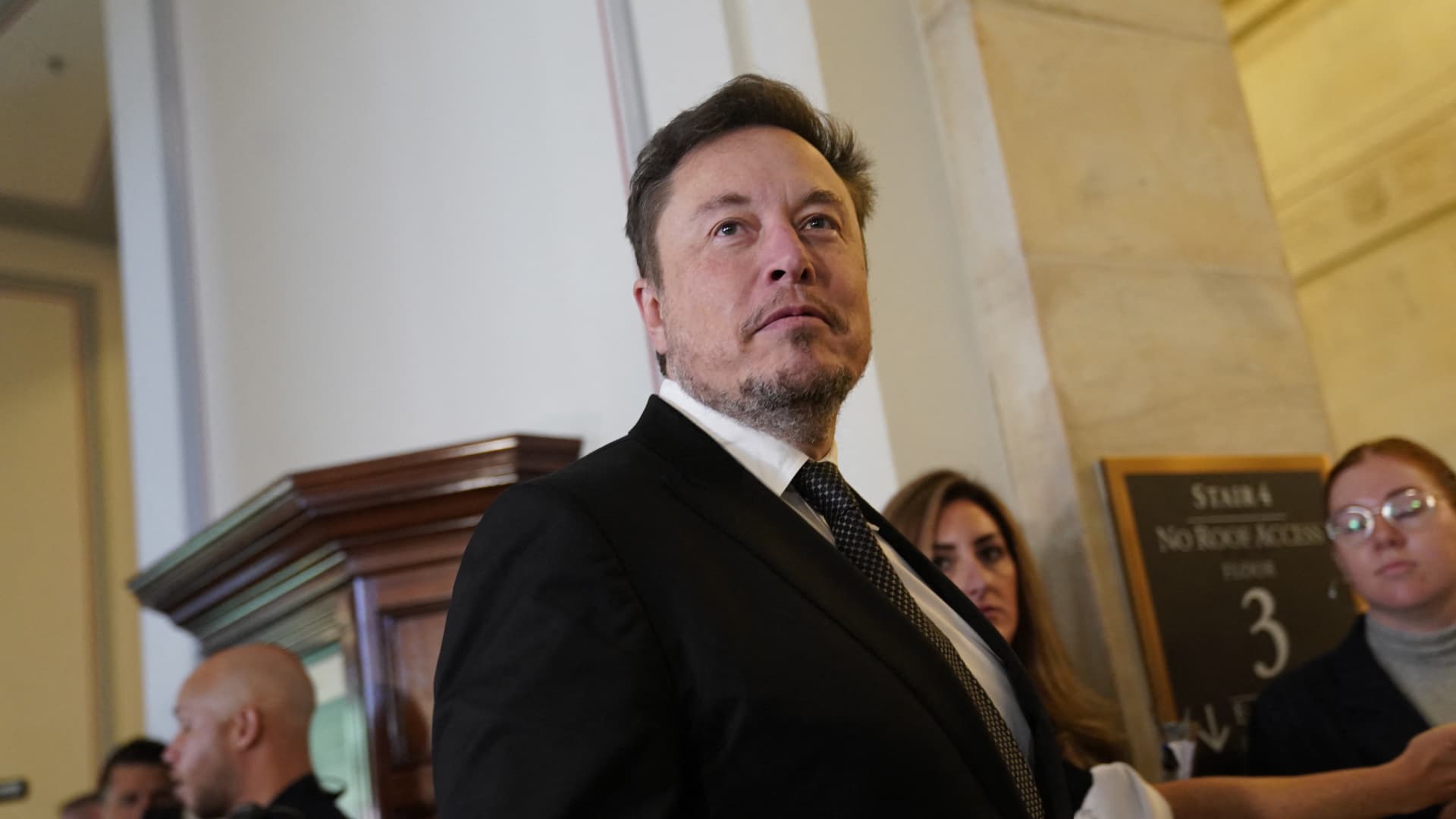SpaceX, Twitter and electric car maker Tesla CEO Elon Musk, arrives for a US Senate bipartisan Artificial Intelligence (AI) Insight Forum at the US Capitol in Washington, DC, on September 13, 2023.
Andrew Caballero-Reynolds | AFP | Getty Images
WASHINGTON — Three Democratic members of the Senate Armed Services Committee have asked the Pentagon for information about SpaceX CEO Elon Musk, and whether he “directed the unilateral disabling or impediment of function of Starlink satellite communications terminals used by the Ukrainian Armed Forces in southern Ukraine in 2022,” or ever had the authority to do so.
Democratic Sens. Jeanne Shaheen of New Hampshire, Elizabeth Warren of Massachusetts and Tammy Duckworth of Illinois wrote a letter on Friday to Defense Secretary Lloyd Austin to exppress their “serious concerns about whether Mr. Musk has personally intervened to undermine a key U.S. partner at a critical juncture.”
Their questions follow the publication of a biography of Elon Musk, who is CEO of SpaceX and automaker Tesla, and owner and CTO of the social network X (formerly Twitter). In the book, author Walter Isaacson wrote that a Ukrainian drone submarine attack on Russian warships was disrupted by a disconnect from Starlink, ordered by Musk.
Excerpts from the book raised alarm bells in Washington, among NATO allies and in the Ukrainian capital. After they were published, Musk painted himself as a peacekeeper, and wrote on social media that he did not disconnect Starlink over Crimea, but rather denied a request by Ukraine to provide it there. He wrote, “If I had agreed to their request, then SpaceX would be explicitly complicit in a major act of war and conflict escalation.” Isaacson has issued a correction to his biography stating that connectivity had already been disabled in the affected area, and that Musk had simply refused a request to turn it on.
Musk also argued, as he has in the past, that Ukraine should strike a “truce” with Russia. Musk’s “peace plan” argument was shouted down by Ukraine officials, politicians, and Putin experts.
On Tuesday, in an interview with CNBC’s “Squawk Box,” Isaacson discussed SpaceX developing a military-grade version of Starlink, which would help resolve concerns expressed by Musk regarding the satellite networks’ use in war.
CNBC asked the Department of Defense several questions pertaining to SpaceX, including whether the department would be re-evaluating any of the company’s government contracts, whether Musk’s calls for a truce between Ukraine and Russia reflect the U.S. government’s position, and whether Musk’s conduct, including taking personal meetings with Putin in the past, had been in line with the terms of contracts awarded to his company.
A spokesperson for the department, Jeff Jurgensen, told CNBC via e-mail, “The Department does contract with Starlink for satellite communication services in support of our Ukrainian partners,” but declined to offer further details or answer the specific questions posed.
He added that the Department of Defense “continues to work closely with commercial industry to ensure we have the right capabilities the Ukrainians need to defend themselves — and more broadly — the kind of communication and space-related capabilities necessary to accomplish our own global missions and support our national defense strategy.”
Earlier in the week, Sen. Warren called for a Congressional probe of Musk and SpaceX. “Congress needs to investigate what’s happened here, and whether we have adequate tools to make sure foreign policy is conducted by the government and not by one billionaire,” Warren said on Monday, Bloomberg first reported.
SpaceX is currently working to obtain a new license from the Federal Aviation Administration, and approvals from the U.S. Fish and Wildlife Service, to resume test flights for its Starship Super Heavy launch vehicle from its Boca Chica, Texas facility. An earlier test flight this year resulted in an explosion and a mishap investigation overseen and recently completed by the FAA.
The company plans to use Starship to launch and deploy its next generation Starlink satellites. Musk also envisions Starship taking astronauts and supplies to the Moon, and eventually Mars.

